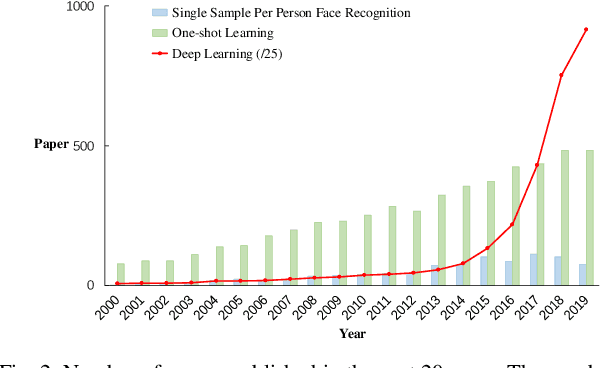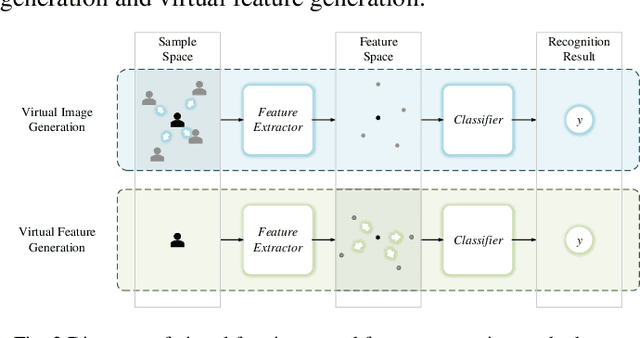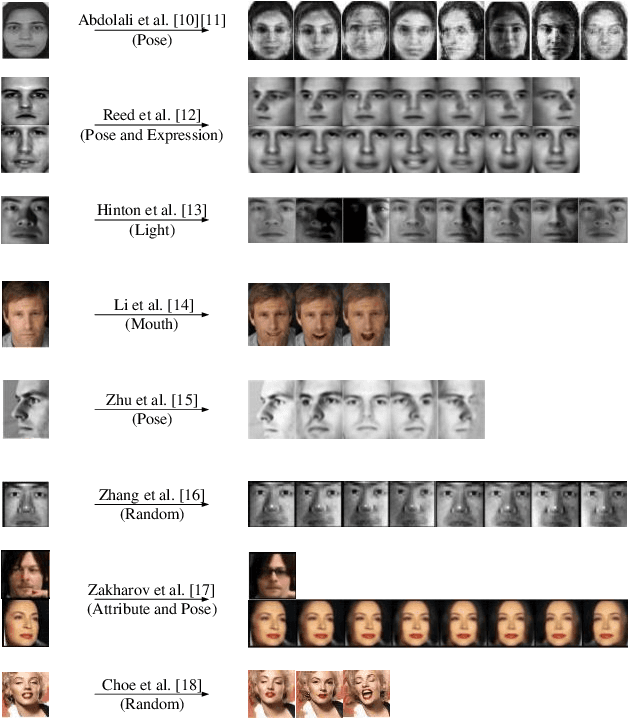Deep Learning Based Single Sample Per Person Face Recognition: A Survey
Paper and Code
Jun 09, 2020



Face recognition has been an active research area in the field of pattern recognition, especially since the rise of deep learning in recent years. However, in some practical situations, each identity in the training set has only a single sample. This type of situation is called Single Sample Per Person (SSPP), which brings a great challenge to the effective training of deep models. To resolve this issue, and to unleash the full potential of deep learning, many deep learning based SSPP face recognition methods have been proposed in recent years. There have been several comprehensive surveys for traditional methods based SSPP face recognition approaches, but emerging deep learning based methods are rarely involved. In this paper, we focus on those deep methods, classifying them as virtual sample methods and generic learning methods. In virtual sample methods, virtual face images or virtual face features are generated to benefit the training of the deep model. In generic learning methods, additional multi-sample generic set are used. Efforts of traditional methods and deep feature combining, loss function improving and network structure improving are involved in our analysis in the generic learning methods section. Finally, we discuss existing problems of identity information retention in virtual sample methods and domain adaption in generic learning methods. Further, we regard the semantic gap as an important future issue that needs to be considered in deep SSPP methods.
 Add to Chrome
Add to Chrome Add to Firefox
Add to Firefox Add to Edge
Add to Edge